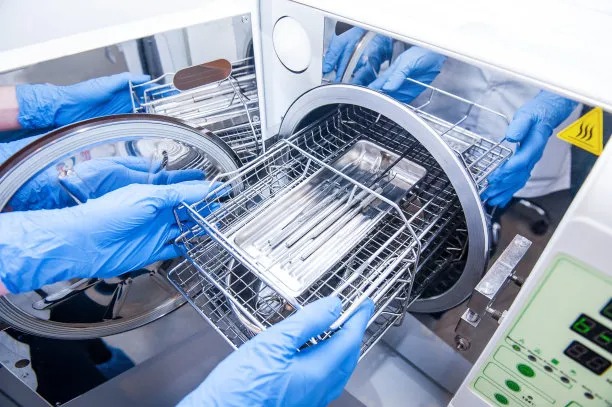Summary: Dental implants are a transformative solution for those looking to replace missing teeth. However, before undergoing this procedure, its crucial to consider several essential precautions for optimal results and safety. This article explores four key aspects: thorough consultation with a dental professional, evaluating personal health conditions, understanding the procedure and recovery, and ensuring proper post-operative care. Each aspect highlights considerations that can greatly affect the success of the dental implant process, ensuring patients are well-prepared and informed. By taking these precautions, candidates for dental implants can significantly improve their chances of a successful outcome while minimizing potential risks.
1. Importance of Consultation with a Dental Professional

The first step before considering dental implants is to have an in-depth consultation with a qualified dentist or oral surgeon. This initial meeting is crucial for understanding the specific needs and dental condition of the patient. Dentists use this opportunity to evaluate the patients oral health, review medical history, and discuss the feasibility of the implant procedure.
During this consultation, patients should ask about the dentists experience with implants and the technology used. A well-informed patient will feel more comfortable and gain confidence in the expertise of their provider. Additionally, dentists may recommend diagnostic imaging, such as X-rays or 3D scans, to gain a clearer understanding of the jawbones structure and determine if bone grafting is necessary.
Finally, discussing treatment options, costs, and expected outcomes is vital. Being well-informed allows patients to set realistic expectations and apprehensions regarding the timeline and the overall process involved in dental implant placement.
2. Evaluating Personal Health and Medical Conditions
Before committing to a dental implant procedure, its essential for patients to evaluate their overall health and any underlying medical conditions. Certain health issues, such as uncontrolled diabetes, heart disease, or autoimmune disorders, can significantly impact the healing process and the implants success rate.
Moreover, dental professionals often assess the patients bone health, as sufficient jawbone density is critical for securely anchoring the implant. If bone density is lacking, patients may require bone grafting, which adds an extra step to the process and may extend the timeline of treatment.
Lastly, discussing medication and lifestyle habits is also important. Patients should disclose any blood thinners, smoking, or alcohol consumption that could interfere with healing. Such discussions enable dental professionals to customize the treatment plan and prepare for any potential complications.
3. Understanding the Procedure and Recovery Process
Having a clear understanding of the dental implant procedure is vital for patient preparedness. Knowledge of what to expect helps reduce anxiety surrounding the surgery. The procedure usually involves placing the titanium implant into the jawbone, followed by a healing period during which the implant integrates with the bone.
Patients should prepare for a recovery timeline, which may include swelling, mild discomfort, and dietary adjustments. Understanding these aspects can help manage expectations and allow patients to mentally and physically prepare for the recovery phase.
Furthermore, patients should be aware of follow-up appointments and the necessity of maintaining oral hygiene throughout the recovery. Implementing these practices can ensure the long-term success of the dental implant and a favorable outcome.
4. Ensuring Proper Post-operative Care
After the dental implant procedure, proper post-operative care is crucial in preventing complications and ensuring optimal healing. Following the dentists instructions on pain management, medications, and dietary restrictions will contribute to a smoother recovery experience.
Additionally, patients should establish a routine for oral hygiene to prevent infections. Regular brushing, flossing, and using antibacterial mouth rinses can help maintain the health of the surrounding gums and ensure the longevity of the implant.
Lastly, regular follow-up visits with the dentist or oral surgeon are essential for monitoring healing and addressing any concerns that may arise. Being proactive in care can help mitigate risks associated with dental implants and encourage robust long-term outcomes.
Summary:
In conclusion, undergoing a dental implant procedure can significantly improve quality of life and oral health for those with missing teeth. However, being well-informed and taking essential precautions are paramount to ensure optimal results and safeguard safety. From thorough consultations and evaluating personal health conditions to understanding the procedure and ensuring proper post-operative care, pre-emptive measures can lead to a satisfactory outcome. Taking these steps not only prepares patients physically but also mentally, leading to a more rewarding experience in their dental care journey.
This article is compiled by Vickong Dental and the content is for reference only.
Vickong Dental
Vickong Dental is a large medical group established in Hong Kong in 2008 by professors from well-known medical universities in Guangdong and Hong Kong, as well as medical doctors from key national '985' universities (including Master's supervisors and senior professors). The chain of branches brings together expert dentists with PhDs and Master's degrees from Hong Kong and Mainland China, committed to providing high-quality dental treatment.
"Vickong Dental Practices the University Motto of 'Healing and Serving Society,' with a Stable Operation for Sixteen Years. It Has Been honored with Hong Kong Enterprise Leaders's Choice,' and is a Global Trusted Implant Center for the Nobel Implant System. Recommended by Hong Kong Metro Broadcast and Guangdong Television, it Serves Customers from Over Thirty Countries and Regions, Gaining the Trust and Favor of Citizens from the Guangdong-Hong Kong-Macau Greater Bay Area and Surrounding Cities.

Thousands of customers' unanimous praise
The most recognized and highly recommended dental service by customers in the Guangdong-Hong Kong-Macau Greater Bay Area
We Ensure You Receive Detailed Care and Attention Here
Hong Kong standards, Shenzhen prices, Your Trusted English-speaking dentists

Vickong Dental Medical-Grade Instrument Disinfection Process
Vickong Dental Medical-Grade Instrument Disinfection Process

Vickong Dental Chain: A Warm and Comfortable Environment for Treatment






Appointment Hours

Q&A
Why choose Vickong Dental?
Vickong Dental practices the university motto 「Medicine to Benefit Society」, with each branch bringing together highly qualified dentists with doctoral and master’s degrees from Hong Kong and the Mainland, and has maintained seventeen years of steady operation。Recipient of 「2024 Hong Kong Enterprise Leaders Brand」, 「2025 Hong Kong Enterprise Leaders Brand」, a Nobel Biocare Global Trusted Implant Center, and a brand recommended by Metro Radio Hong Kong and Guangdong TV。
To date, we have served customers from more than thirty countries and regions,earning exceptionally high word-of-mouth recognition and trusted recommendations from residents across the Guangdong-Hong Kong-Macao Greater Bay Area and surrounding cities
We have eight major branches in Zhuhai、Shenzhen,and a consultation and service assurance center in Hong Kong,so you can book a free consultation at any time for any questions,which is very reassuring.
If I do not accept the quotation after the CT scan, will I be charged??
No! As long as the actual treatment has not started, you will not be charged any fees.
Will there be any additional charges during the treatment process?
No, there won’t be any additional charges. Before treatment begins, we will clearly explain the treatment plan and its corresponding fees. Only after the patient agrees and signs the consent form will we proceed with the dental service.
Can I pay in Hong Kong dollars?
Yes. Vickong Dental accepts payment in Hong Kong dollars. The amount will be converted based on the exchange rate of the day, and the applicable rate will be clearly communicated to you in advance.
Can I reschedule my appointment at any time?
Yes. Please contact us via **WeChat** or **WhatsApp** as early as possible, providing your original appointment time and details, along with your preferred new date and time slot for rescheduling.













